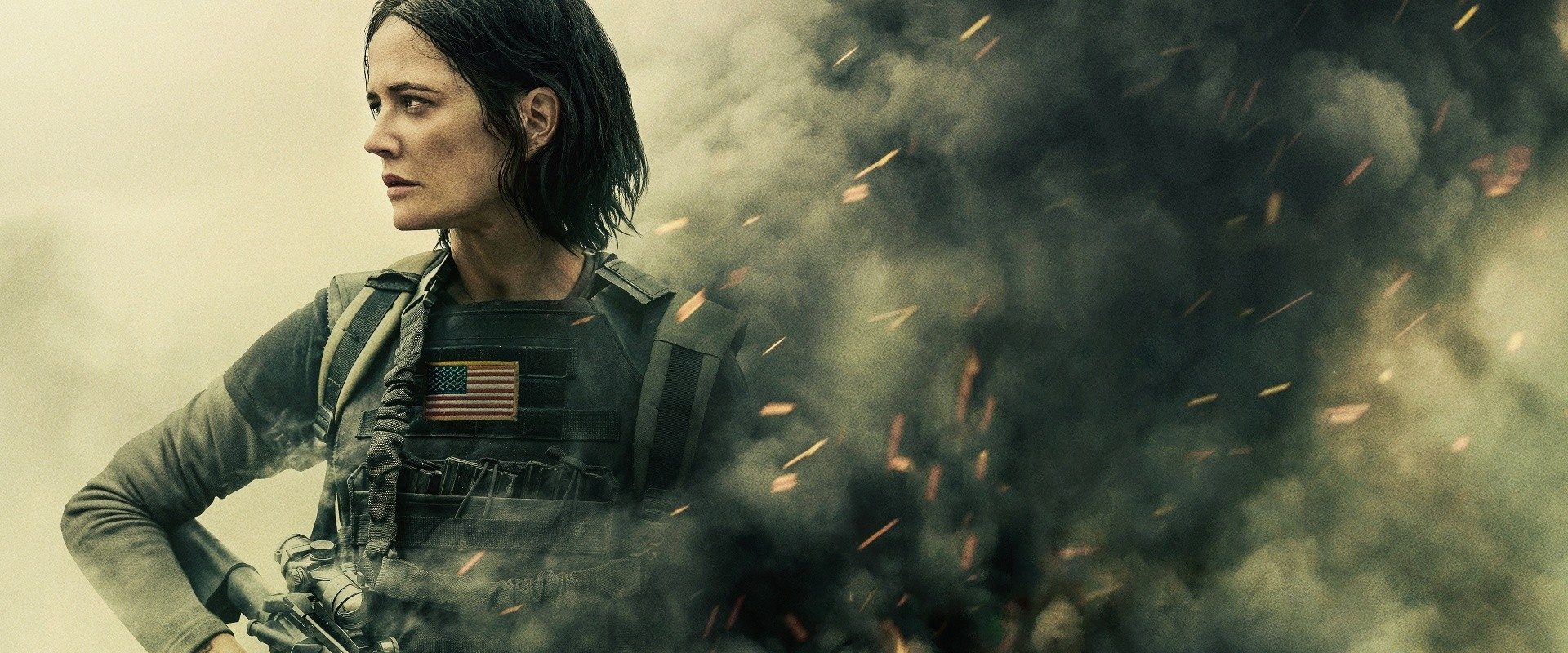There’s a particular variety of agony reserved for a movie that owes you nothing but revenge for your ticket price—Dirty Angels, that screeching travesty, is the kind of picture that makes you long for the cleansing reset of a fire alarm at the multiplex. I wandered into this on the power of Eva Green’s name—Green, the bewitching sphinx of Casino Royale, the only actress in Europe who could make absinthe seem like a food group for grown-ups, a woman so regal she can elevate bad prose by the simple motion of an eyebrow. Here? I was cursing at the screen, and when the closing credits limped into view, I found out, to my horror, that this circus wasn’t the product of a neophyte director with TikTok aspirations—but Martin Campbell himself. Yes, the same Campbell who gave us GoldenEye’s gleaming coolness and Casino Royale’s athletic grace. Is there another Martin Campbell out there, brazenly collecting paychecks for things like Dirty Angels? If not, someone had better warn the Directors Guild.
The premise, such as it is, reads like SYFY-movie detritus slurped up and spat out by a malfunctioning algorithm: Afghanistan, right at the doomed finale of the U.S. withdrawal. Helpless girls kidnapped from a school. Ten million in ransom per head. Only one answer, apparently: assemble an all-female GI Joe squad—mechanics, weapon specialists, bomb experts, the lot—each slotted into their own niche with the subtlety of a Buzzfeed personality quiz. There’s Eva Green as Jake, storming around like she’s auditioning for the cover of Badass Quarterly, telling you to leave no man behind (while, presumably, tripping over the corpses of all the women). “Leave no man behind,” the movie grunts—and, you want to tell it, “but what about the women?” No one seems to be listening, least of all the filmmakers. The script is so unashamedly juvenile I kept expecting the camera to fall and reveal a circle of nine-year-olds mashing action figures together in the dirt.
The introductions of the squad are delivered with all the self-seriousness of a perfume ad directed by a failed influencer—slow-mo, swagger, banter from hell. But all we really meet is a collection of losers with the personality of damp toast. The plan must have been to sell us on the novelty of women doing what Schwarzenegger did back when we still thought he might be a cyborg—except Campbell’s direction, once capable of giving us grit and velocity, here just frames this parade of embarrassments, hoping we’ll mistake accidental camp for cool.
And you want to ask: was anyone having a good time here? The cast looks lost, as if the sets were haunted by the ghost of better scripts. Eva Green, God bless her, wrings her cheeks and strains her voice into that forced action-movie rasp, a kind of asthmatic Christian Bale imitation, but it’s all so effortful and empty it verges into comic territory. Eva Green has, apparently, decided she must appear “tough”—the result is a performance that’s so contorted and insistent it derails the entire film. You can sense her suffering, but not her character’s. The accent is a disaster—less a nod to realism and more a raspberry blown at diction coaches everywhere. She’s saddled with a backstory that’s supposed to scream “tortured soldier with feminist rage” but reads like “branding exercise for discounted Funko Pops.” Jake is, hands down, the most unlikeable protagonist I’ve suffered through this year: each decision more self-sabotaging than the last, a mascot for the tragic consequences of excessive main character energy.
The action? Campbell, to his credit, hasn’t entirely forgotten how to shoot an explosion—he’ll frame the hell out of a fireball, as if Old Hollywood could be conjured with raw kerosene alone. But what once looked like muscular confidence now registers as rote habit. That bus and motorbike set-piece—billed as the big showstopper—is such a physically incoherent, laughably staged mess that you’d swear you were watching a parody stitched together by recess monitors desperate to corral fourth-graders from whacking each other with Nerf bats.
The supporting cast stumbles along with the athletic despair of actors who know their talent is being wasted. Maria Bakalova, Ruby Rose, Jojo T. Gibbs—these women have presence, they have timing, they have faces that could launch a thousand memes and maybe even one good Tarantino flick. Here, they’re reduced to color-coding and catchphrases, a team-building seminar run by screenwriters who seem to think “depth” means “let’s give her a computer.” The script, credited to three people (occasionally I wondered if any of them were over the age of eleven), is so wholly witless and so allergic to intelligible dialogue it could have been hammered together by an AI running on dusty batteries.
The ending strives for a kind of tired nobility—Jake, battered, posturing, makes a Big Choice amid dust and debris. But by then, the only choice worth making is exiting the theater before your IQ drops below room temperature. Campbell does what Campbell does: he takes the world’s most insane script and shoots the fuck out of it, but I’m starting to think the real crisis here isn’t Afghanistan but the man’s rapidly declining reading comprehension. I want to believe everyone involved in Dirty Angels will crawl back to material that demands something approaching dignity. This isn’t a professional motion picture—it’s a masterclass in wasted potential, a checklist of what happens when you assemble talent and then leave them flapping, tin-eared, in the wind.
There are bad movies, there are trash movies, and then there are movies like Dirty Angels—why-did-God-abandon-us movies. Skip it, skip it, skip it. If this really is the worst film of 2024, we should all count ourselves lucky that there’s still time left to forget it ever existed.


